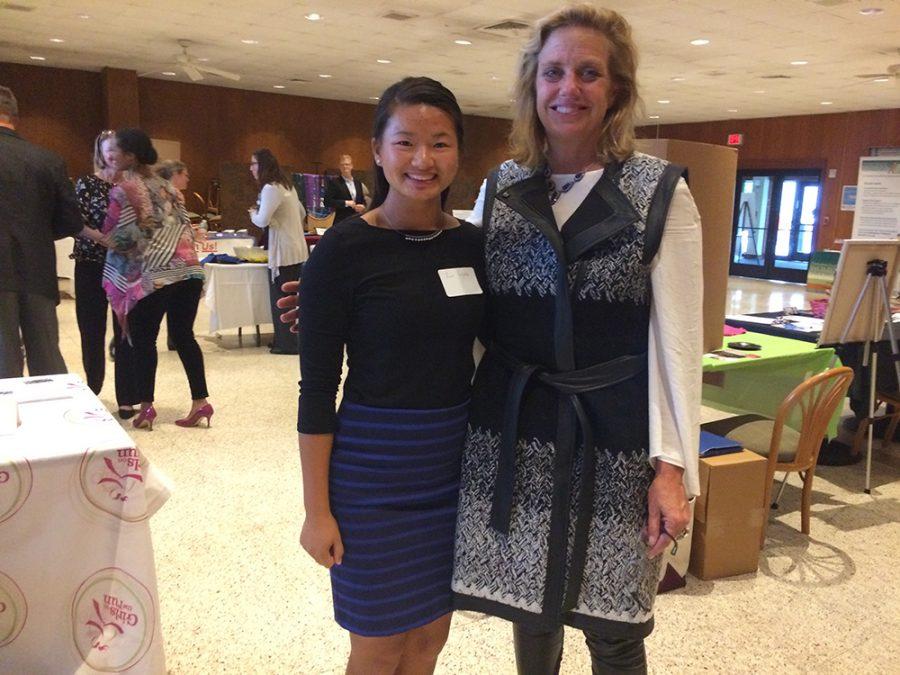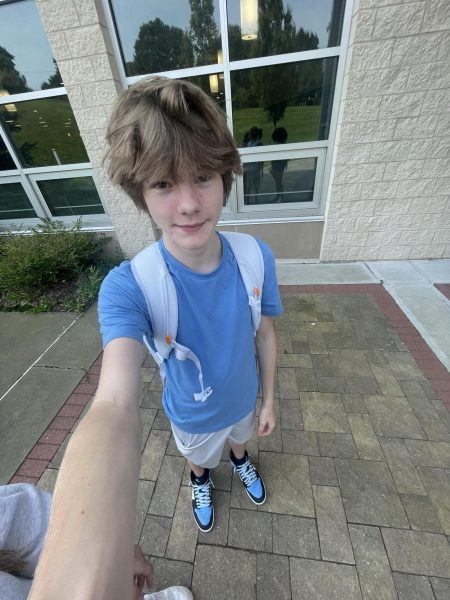The Role of the Patriarchy
October 27, 2016
Sexual assault is very real.
Geralyn White Dreyfous, Emmy Award winner, film producer and a graduate of Harvard University advised young women going into college “to really be aware of it and be smart and not be afraid to tell the truth, but also be protective of yourself but to never be ashamed if anything happens to you or one of your friends.”
Dreyfous was the keynote speaker at the Women’s Leadership Forum at the United States Coast Guard Academy on October 2, 2016. She spoke about sexual assaults on high school and college campuses and the need to address the taboo topic.
She said, “Believe any one of your friends if they tell you and not be afraid to tell the truth because there’s more suffering that happens in silence.”
As a film producer, Dreyfous makes movies that range from happy “go-getter” films to those with a morose feel of reality.” One of her most recent films called Audrie and Daisy is a documentary about two young ladies from different states who were both raped at high school while being intoxicated. Their accounts are vividly portrayed, and they do not all end up with a happy ending. Audrie ended her life only eight days after the incident. The perpetrators escaped legal or punitive punishments for their behavior.
When asked what the root of the problem was behind sexual assault, Dreyfous responded, “I think that it’s about power. The idea of someone having a loving marriage is a new idea. It’s only about 100 years old. It’s younger than democracy, and most countries you still have arranged marriages.”
She continued, “I think that the ‘role of patriarchy,’ whether it’s in marriage where women were always more property than partners, is really this idea that men somehow have grown up assuming that they have sexual dominion over their partners or women, which is a deeply held belief that has been passed on and not challenged. It needs to be challenged now. There just needs to be more boundaries and respect around the choice that you have for whoever your partner’s going to be and you don’t need to have unwanted solicitations or advances because you’re a women whereas I think most men felt like it was their right to be able pursue or act on who they thought was attractive just assuming that somebody would want to reciprocate, which is not always the case.”
Many cases of unwanted love end badly, but this kind of case is a major piece of the problem with sexual assaults. In addition, Dreyfous said, “The media does really send some very conflicting messages. It shows us women that are powerful, and it shows us women that are completely demeaned. I think that pornography is a huge issue that no one’s talking about because young boys are watching pornography at younger and younger ages. They are getting a very distorted view of what intimacy and sex is and a very unhealthy view of what partnership and sex really is. Those three things have been the perfect storm for a long time, and now we are starting to see it for what it is and not accept it which is good.”
In reaction to Dreyfous’s speech, Emilia Skrabacz, 13 years old from Bennie Dover Jackson Middle School, said: “It made me think that it was a bigger deal than I thought it was.”
Madison Geiger, 16 years old from Stonington High School, replied: “What affected me was how often it occurs and how no one notices it.”
Morgan Letinsky, 16 years old from Stonington High School responded: “It shocked me how often it occurs and how they want to not talk about it and pretend it doesn’t happen.” All three expressed that sexual assaults are more common than they thought they were.
Budding off of advice about sexual assault for young women going to college, Dreyfous has some general advice that she wants young women to keep in mind. When going off to college, Dreyfous advised to “have the confidence and curiosity to study what you want, to learn, not be afraid to make mistakes, and to be as curious as you possibly can.”
Dreyfous continued, “This is a really great time of your life to experiment and learn and the most important thing you’re going to learn is what you don’t want to do. You don’t need to know what you are going to do. What you’re about to learn for the next ten years is what you’re good at and what you don’t want to do that will make you happy. -So give yourself a break.”







